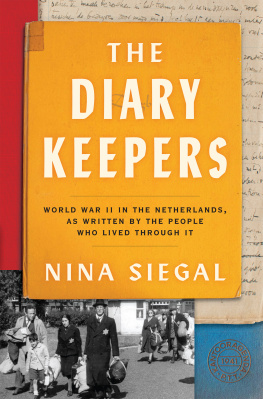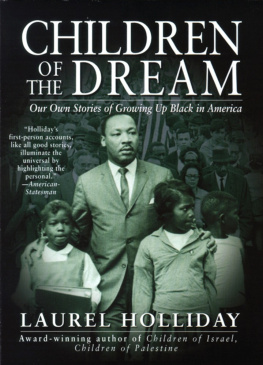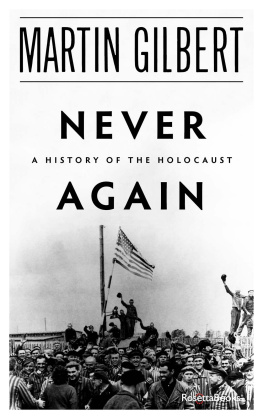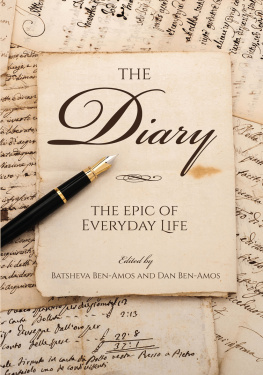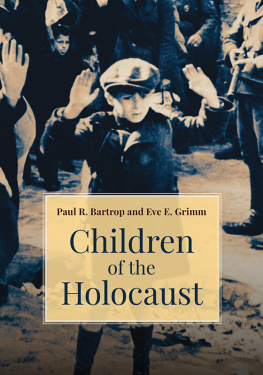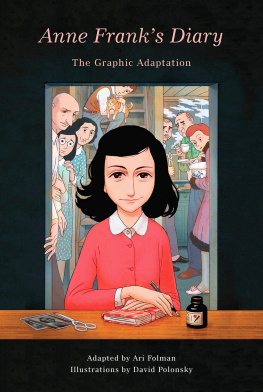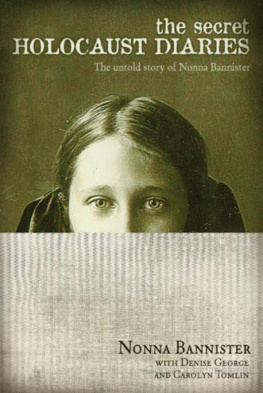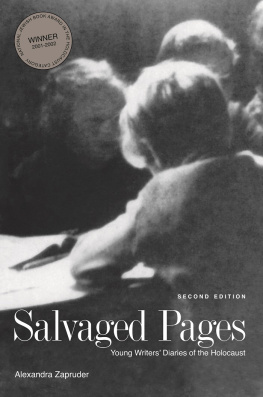Salvaged Pages
Salvaged Pages
Young Writers Diaries of the Holocaust
Collected and edited by Alexandra Zapruder
Yale University Press New Haven and London
Excerpts from the diary of Moshe Flinker, 1971 Yad Vashem, Jerusalem.
Excerpts from the diary of Dawid Rubinowicz, 1982 Norman Bolotin,
courtesy of Laing Communications, Inc.
Excerpts from the diary of Yitskhok Rudashevski, 1973 Ghetto Fighters House,
courtesy of the United States Holocaust Memorial Museum.
Copyright 2002 by Alexandra Zapruder.
All rights reserved.
This book may not be reproduced, in whole or in part, including illustrations, in any form (beyond that copying permitted by Sections 107 and 108 of the U.S. Copyright Law and except by reviewers for the public press), without written permission from the publishers.
Designed by Sonia Shannon.
Set in Bulmer type by The Composing Room of Michigan, Inc.
Printed in the United States of America.
Library of Congress Cataloging-in-Publication Data
Salvaged pages: young writers diaries of the Holocaust / collected and edited by Alexandra Zapruder.
p. cm.
Includes bibliographical references (p.) and index.
ISBN 0-300-09243-1 (alk. paper)
1. Jewish children in the HolocaustDiaries. 2. Holocaust, Jewish
(1939-1945)Personal narratives. I. Zapruder, Alexandra.
D804.48.R85 2001
940.5318092dc21 2001046650
A catalogue record for this book is available from the British Library.
The paper in this book meets the guidelines for permanence
and durability of the Committee on Production Guidelines
for Book Longevity of the Council on Library Resources.
109 8 7 6 5 4 3 2 1
To my dear friend and mentor, Barbara Kellum
Thou hast nor youth nor age
But as it were an after dinner sleep
Dreaming of both.
T. S. Eliot, Gerontion
Acknowledgments
This project would quite simply not have existed but for the kindness and generosity of people throughout the United States, Europe, and Israel. Foremost among them are the Holocaust survivors and the relatives and friends of living and deceased young writers who shared diaries with me, answered countless questions, and in small and large ways encouraged my work on this subject. For this, I am deeply grateful to Werner T. Angress, Andrea Axt, Janina Bauman, Miriam Korber Bercovici, Norman Bolotin, Aleksander Demajo, Debrah Dwork, Selma Engel, Peter Feigl, Jacob Fishkin, the family of Moshe Flinker, Felicitas (Lici) Garda, Helga Weissov Hoskov, Lilly Isaacs, Inga Joseph (also known as Ingrid Jacoby), Helga Kinsky, Elizabeth Koenig, Clara Kramer, Michael Kraus, Moshe Kravec, Jacob Langer, Jutta Levy and Debbie Levy, Guido Lopez, Thomas Mandl, Halina Nelken, Ana Novac, Elisabeth Orsten, Mirjam Pinkhof, Chava Press-burger, Anne Ranasinghe, Macha Rolnikas (also known as Masha or Maria Rolnikaite), Lillyan Rosenberg, Tamara Lazerson Rostovsky, Eva Roubckov and Vera Wiser, Lena Jedwab Rozenberg and Dorothe Rozenberg, Gertrude Schneider, Alisa Shek, Leo Silberman, Edith Velmans, Charlotte Veresov, Werner Warmbrunn, Susi Hilsenrath Warsinger, Denise Weill, Paul Weiner, and Leon Weliczker Wells.
Many young writers did not live to see the end of the war and their diaries are in the safekeeping of archives and museums around the world. I am particularly indebted to archives that provided documents and gave permission for their use in this work, among them the United States Holocaust Memorial Museum in Washington, D.C.; Beit Theresienstadt, Givat Chaim Ichud, Israel; Centre de Documentation Juive Contemporaine in Paris; Fondazione Centro di Documentazione Ebraica Contemporanea in Milan; the Jewish Historical Institute in Warsaw; Joods Museum van Deportatie en Verzet in Mechelen; Kibbutz Moreshet Archives in Israel; the Lithuanian Central State Archives in Vilnius; the Museum of Jewish Heritage in New York; the Vilna Gaon Jewish State Museum in Vilnius; YIVO Institute for Jewish Research in New York; the Federation of Jewish Communities in Yugoslavia, Belgrade; Herinneringscentrum Kamp Westerbork in the Netherlands; the Jewish Museum in Prague; and Yad Vashem in Jerusalem.
In these archives, there were individual librarians and archivists whose help and graciousness went far beyond all expectations and requirements. I wish especially to thank William Connelly, Steven Vitto, Mary Ann Leonard, and Mark Ziomek of the United States Holocaust Memorial Museum, Alisah Schiller of Beit Theresienstadt, Alina Skibinska of the Jewish Historical Institute in Warsaw, Judith Kleiman of Yad Vashem, Rachel Kostanian of the Vilna Gaon Jewish State Museum in Vilnius, and Esther Brumberg of the Museum of Jewish Heritage in New York.
A small but generous group of people and foundations funded the translations for this project. I am very grateful to Diane Troderman and the Hatikva Holocaust Center in Springfield, Massachusetts, Zamira Korff and the Baruch Korff Foundation, the Pozez family, Steven Ludsin and the Remembrance of the Holocaust Foundation, my parents, Marjorie and Henry Zapruder, and Marcia Kurtz for the invaluable contribution of financing the translations that made these diaries available to the public in English.
A veritable army of dedicated translators rendered these diaries from their native languages into English. I am indebted to them for their skill, talent, and ingenuity, and for their many efforts on behalf of this project. They are Madeline Vad-kerty, Ivo Rezncek, and Benjamin Herman (Czech); Malgorzata Markoff and Kristine Belfoure (Polish); Maya Popovic (Serbo-Croatian); Dana Keren (Yiddish, Hebrew, and Polish); Galeet Westreich (Hebrew); Solon Beinfeld and Tina Lunson (Yiddish); Kenneth Kronenberg and Gerald Liebenau (German); Radu Ioanid and Julie Donat (Romanian); and Laszlo Szimonisz and Peter Katona (Hungarian). I wish to also extend my thanks to those who previously translated some of the diaries that appear in this book. They include Peter Feigl (French and German), Michael Kubat (Czech), Percy Matenko (Yiddish), and Derek Bowman (Polish).
I wish to express my special thanks to my many colleagues and friends at the United States Holocaust Memorial Museum who supported this work over nearly a decade. Staff members and volunteers from the various divisionsLibrary, Archives, Collections, Photo Archives, Registry of Jewish Holocaust Survivors, Oral History, Education, Exhibitions, and the Center for Advanced Holocaust Studiesregularly came to my aid, supplying me not only with primary and secondary source material, but with interviews, contacts, photographs, ideas, informal translations, and, perhaps above all, the kind of encouragement that makes all the difference. I wish especially to thank Vadim Altskan, Brewster Chamberlin, Emily Dyer, Raye Farr, Martin Goldman, Sara Greenberg, Jerzy Halberzstadt, Ken Haman, Patricia Heberer, Radu Ioanid, Ferenc Katona, Marvin Liberman, Genya Markon, David Marwell, Scott Miller, Susan Morgenstein, Klaus Mueller, Jacek Nowakowski, Teresa A. Pollin, Jerry Rehm, Mary Lou Riccio, Joan Ringel-heim, Travis Roxlau, Diane Saltzman, Sara Sirman, Suzy Snyder, Paul Thomas, Shari Rosenstein Werb, Bret Werb, and the late Sybil Milton.
I have been extremely fortunate during the course of this project to have knowledgeable, thoughtful, and generous colleagues and friends upon whom to lean. Their contributions have taken all forms and have been material and spiritual; I would not have wanted to do this work without them. Chief among these are Michael Berenbaum, Maria Bucur, Steve Cogil, Ellen Diamond, Brian Funck, Deborah Gaffin, Alexandra Garbarini, Jennifer Gaylin, Mimi Hellman, Zuzana Justman, Anita Kassof, Barbara Kellum, Sara Lawrence Lightfoot, Frank Laurence, Dini McCullough, Kelly McHugh, Kristy Sager, Jillaine Smith, Alicia Seiger, Marion Usher, Melody Wilenski, Carin Zelenko, and Rabbi Daniel G. Zemel.
Next page

